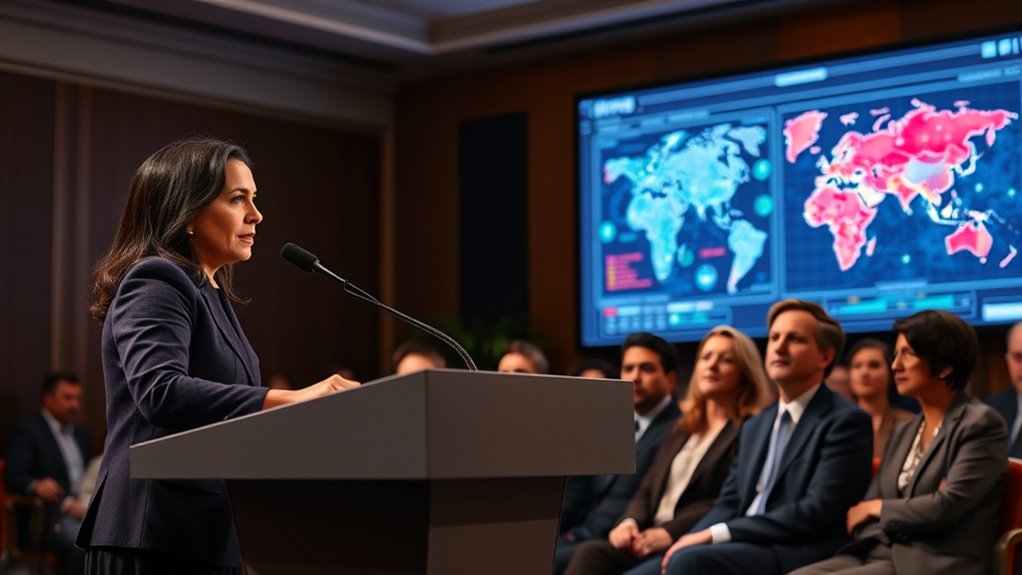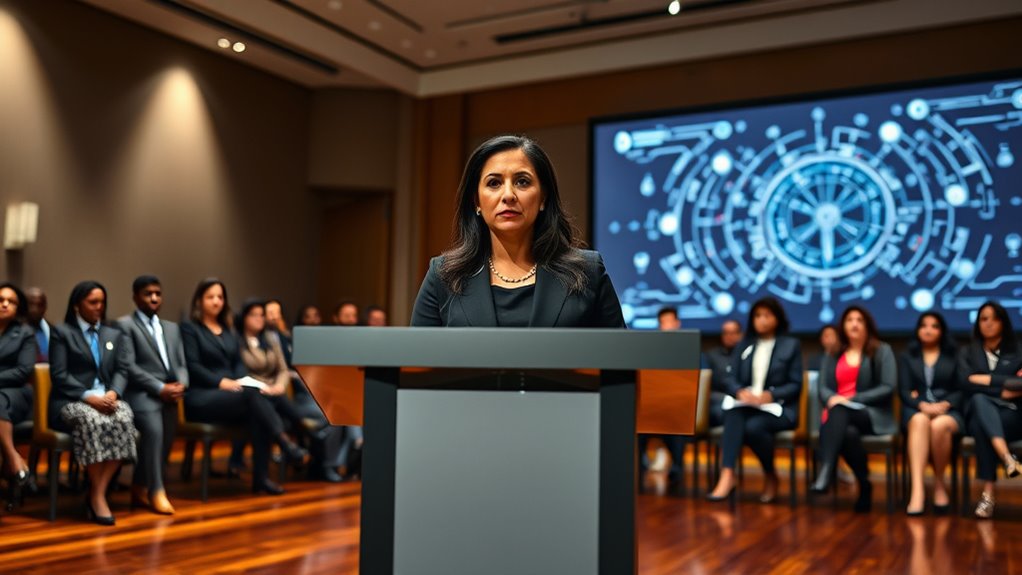Tulsi Gabbard's AI-driven intelligence vision has just received crucial support from a Senate panel, which underscores the pressing need for responsible oversight in AI's rapid development. She advocates for regulations to manage the dangers of autonomous weapons and cyber threats, promoting transparency and accountability within intelligence agencies. Gabbard's approach emphasizes diplomacy and non-intervention over military action, aiming to restore public trust in intelligence. There's much more to uncover about her plans and their potential impact.

As concerns about the rapid evolution of artificial intelligence grow, Tulsi Gabbard's vision for integrating AI into national security reflects a crucial shift toward more responsible oversight. You've likely heard about the pressing need for checks and balances in AI development, especially given its military applications. Gabbard's perspective emphasizes that without proper regulation, AI could pose significant threats, particularly when it comes to autonomous weapons and their potential for uncontrolled escalation.
Tulsi Gabbard advocates for responsible AI oversight in national security, stressing the need for regulation to mitigate threats from autonomous weapons.
You understand that global cooperation is essential in addressing these challenges. Gabbard advocates for international collaboration to establish guidelines that protect humanity from the dangers AI might present. Cybersecurity is one area where her vision stands out. With AI driving increasingly sophisticated cyber threats, it's clear that enhancing your nation's cybersecurity strategy is paramount. Gabbard recognizes this and aims to reform intelligence to prioritize strategic, peace-driven approaches rather than aggressive military interventions. Her military experience informs her understanding of the complexities of modern security threats.
In recent years, you've seen how AI is increasingly utilized in cyber warfare. This trend poses significant risks to national security, especially with countries like China and Russia engaging in AI-related espionage. Gabbard's leadership as Director of National Intelligence positions her to directly address these threats. With oversight of 17 intelligence agencies, including the CIA and NSA, she's a unique opportunity to implement her reform agenda focused on transparency and accountability.
You're probably aware that AI is also being used to spread disinformation, complicating intelligence gathering and analysis. Gabbard's emphasis on diplomacy over confrontation in dealing with AI-related security challenges is refreshing. Rather than escalating tensions, she seeks to foster diplomatic engagement, which can lead to more effective resolutions.
Her non-interventionist stance might influence how intelligence strategies are developed, prioritizing peaceful conflict prevention over military aggression. Gabbard's vision for intelligence reform looks to end the politicization of intelligence, restoring public trust in the process. Moreover, she staunchly defends encryption and privacy rights, opposing any backdoors that could jeopardize individuals' data integrity.
Conclusion
In Gabbard's pursuit of an AI-driven intelligence future, you see a beacon of hope cutting through the fog of uncertainty. Her vision isn't just a technological leap; it's a lifeline for a nation hungry for clarity and security. As the Senate panel backs her initiative, the potential for innovation shines brightly, promising to transform how we interpret data and respond to threats. With Gabbard leading the charge, the future of intelligence could be as bright as a new dawn.









